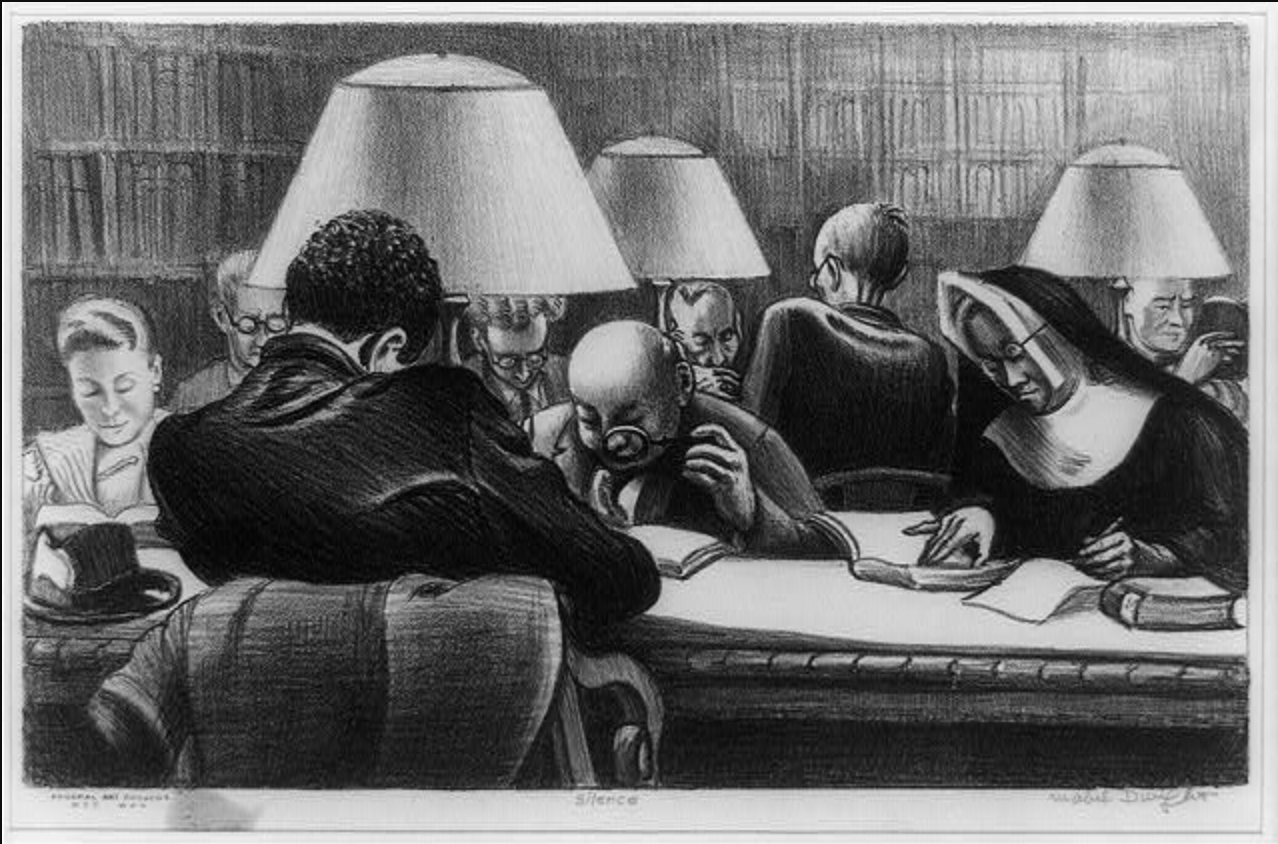Teach This Poem, though developed with a classroom in mind, can be easily adapted for remote-learning, hybrid-learning models, or in-person classes. Please see our suggestions for how to adapt this lesson for remote or blended learning. We have also noted suggestions when applicable and will continue to add to these suggestions online.

Look closely at the drawing “Silence” by Mabel Dwight.
The following activities and questions are designed to help your students use their noticing skills to move through the poem and develop their thinking about its meaning with confidence, using what they’ve noticed as evidence for their interpretations. Read more about the framework upon which these activities are based.
-
Warm-up: Look closely at the drawing “Silence” by Mabel Dwight. What do you notice? Look again, what else do you see?
-
Before Reading the Poem (think, pair-share): Share with a partner or small group, what places help to inspire you?
-
Reading the Poem: Now, silently read the poem “La Biblioteca is a Doula” by Magdalena Gómez. What do you notice about the poem? Note any words or phrases that stand out to you or any questions you may have.
-
Listening to the Poem (enlist two volunteers to read the poem aloud): Listen as the poem is read aloud twice. Note any words or phrases that stand out to you, or those that you may not know the meaning of. You might opt to watch the video of the poet reading the poem.
-
Small-group Discussion: Share what you noticed in the poem with a small group of students. Based on the details you just shared with your small group and the resource from the beginning of class, how might this speaker feel about “la biblioteca,” and what might the library represent for the speaker? How does this compare to the image you viewed at the beginning of class? Why do you think the poet uses the word “doula?” What connections can you draw between a library and birth?
-
Whole-class Discussion: Is this poem a praise poem? The speaker states “musty books perfumed by imagination.” What perfumes your imagination?
-
Extension for Grades 7-8: Think back to what you discussed at the beginning of class. What places and people have been sources of wonder and inspiration? Create a poem, short story, song, visual art piece, etc. that celebrates this place or person.
-
Extension for Grades 9-12: Use this site to learn more about your local library. With a small group of classmates, and with your teacher’s support, reach out to a local librarian and research your library’s history. Present your findings to the class.
Every National Poetry Month, the Academy of American Poets presents Dear Poet, a multimedia education project that invites young people in grades five through twelve to write letters in response to poems written and read by award-winning poets, including poets who serve on the Academy of American Poets Board of Chancellors and who have received our Academy of American Poets Laureate Fellowships. Find and respond to Gómez’s poem among others, and participate in Dear Poet 2022.
This week’s poetic term is praise poem, which is a poem of tribute or gratitude. Read more.
